Heroism, Devastation After Deadly N. Zealand Volcano Eruption
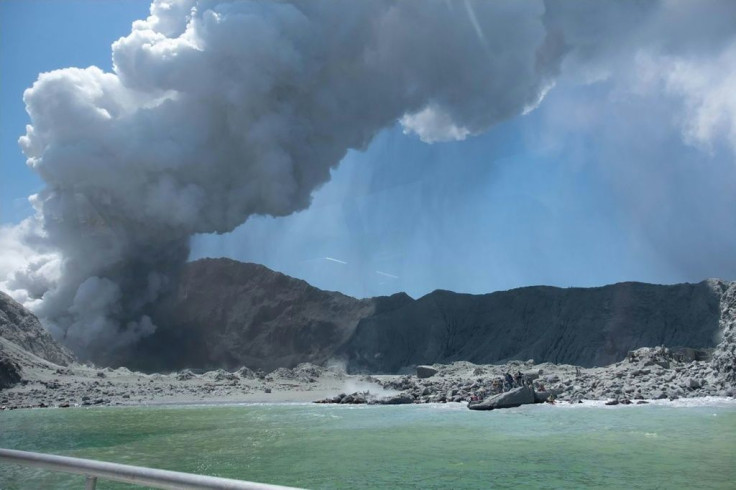
Tales of heroism, devastation and horrifying injuries emerged Tuesday after New Zealand's smouldering White Island volcano exploded, killing an estimated 14 people and turning what should have been an intrepid day trip into a nightmare.
The number of confirmed fatalities rose to six Tuesday night after an injured person died in an Auckland hospital, police said.
Eight more people were presumed dead after Monday's eruption, while dozens of others injured were being treated in hospital burns units across the country.
Among the 47 people caught on the island during the sudden blast were tourists from Australia, the United States, Britain, China, Germany and Malaysia, as well as local tour guides.
As relatives of the missing faced an agonising wait to discover the fate of their loved ones, police said conditions remained too dangerous for recovery teams to set foot on the volcano.
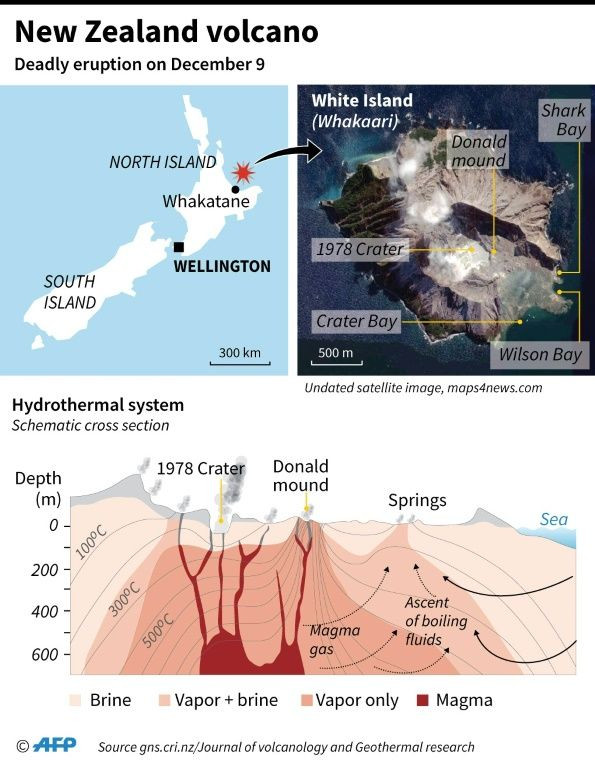
Amid questions about how tourists were allowed on the island, police said they were opening an investigation into the circumstances of the deaths and injuries -- but they backtracked on suggestions it could lead to criminal charges.
Prime Minister Jacinda Ardern praised the crews of four rescue helicopters for landing on the island soon after the eruption.
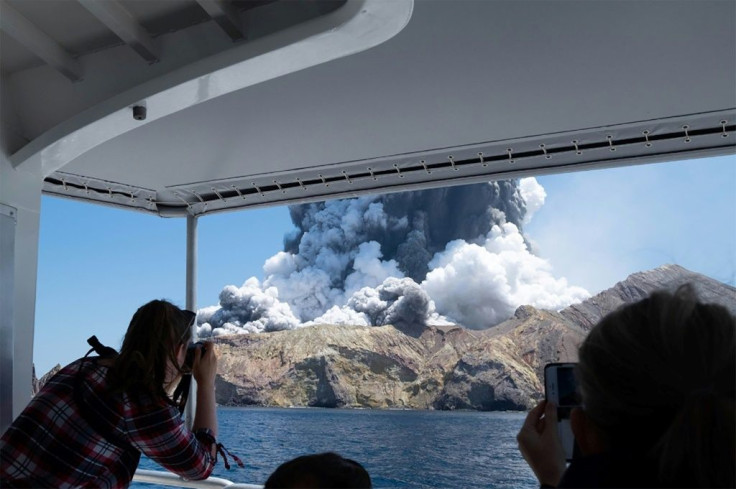
"Those pilots made an incredibly brave decision under extraordinarily dangerous circumstances in an attempt to get people out," she told reporters.
Intensive care paramedic Russell Clark was among those dispatched by helicopter to the volcano, which sits semi-submerged 50 kilometres (30 miles) out to sea.
He was confronted by an "overwhelming" and "shocking" scene of devastation.
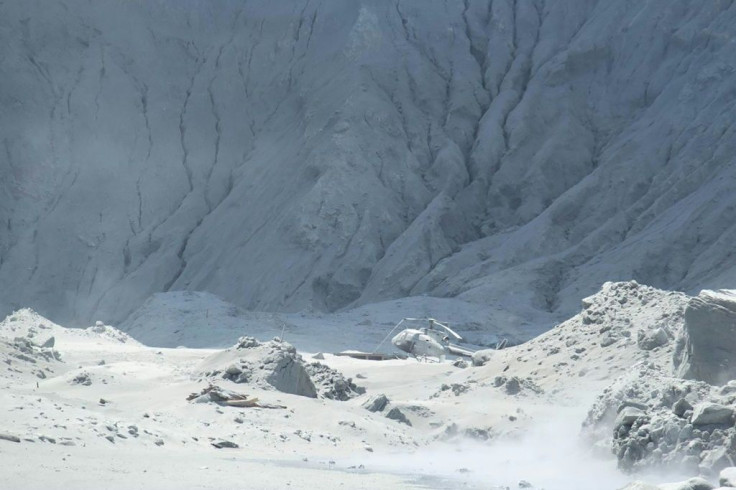
"We didn't find any survivors," he told TVNZ, recalling a dust-covered helicopter grounded with its rotor blades damaged.
"It was like... I've seen the 'Chernobyl' mini-series and it was just everything was just blanketed in ash.
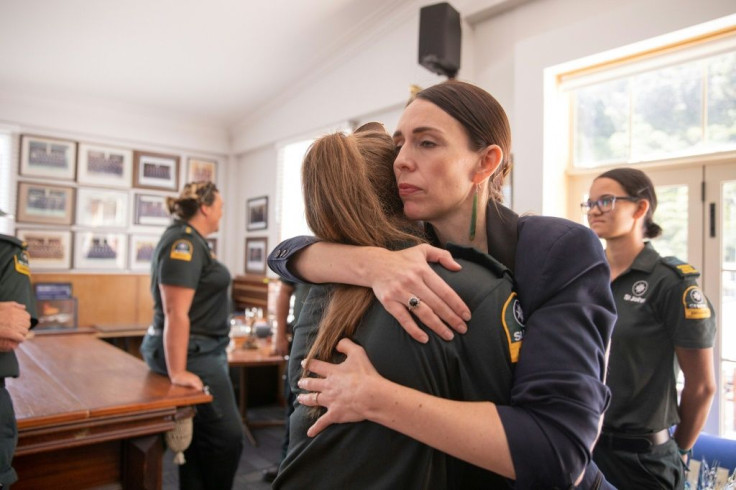
"I can only imagine what it was like for the people there at the time -- they had nowhere to go and an absolutely terrible experience for them."
New Zealander Geoff Hopkins' tour boat was leaving the island when a huge plume burst from the volcano -- at what scientists said was supersonic speed -- followed by a "menacing" cloud of grey ash.
Despite the danger, Hopkins said the boat moved closer to the shore after seeing survivors jump from the island into the sea to escape.
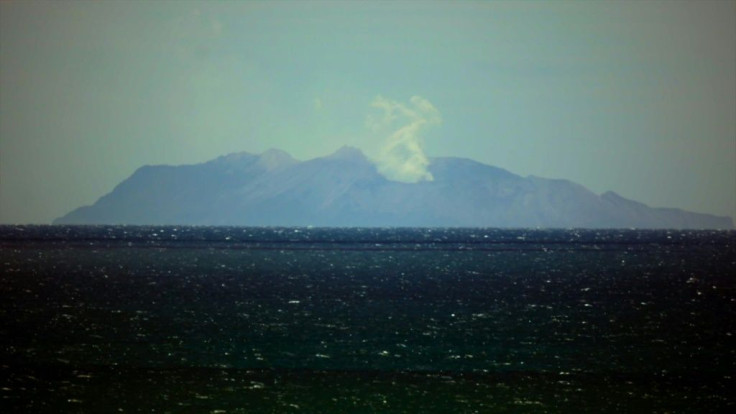
"I don't think there was anyone that came off who wasn't badly burnt," he told the New Zealand Herald, describing how victims screamed and went into shock as fellow tourists tried to tend to their blistered skin.
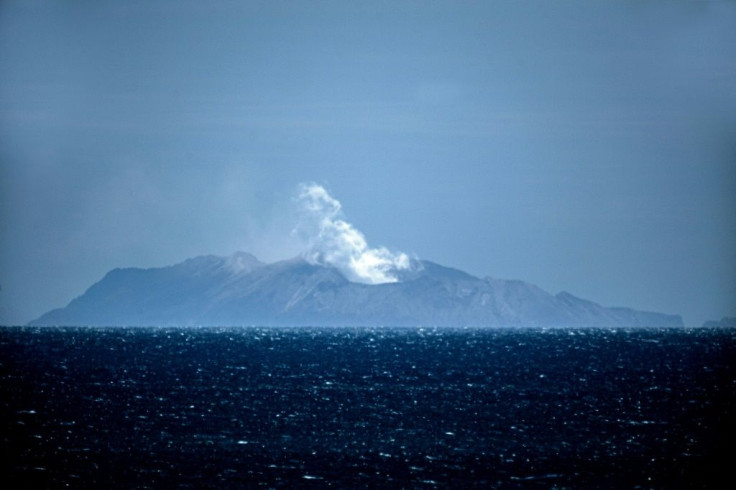
Top New Zealand health official Pete Watson said 27 of the 34 survivors were being treated for burns to more than 71 percent of their bodies.
"It's important not to underestimate the gravity of the injuries suffered," he said.
After an initial rush, concerns about further eruptions, poisonous gases and choking ash stalled efforts to recover bodies.
The risks were underscored Tuesday when a large-but-harmless 5.0 magnitude earthquake struck to the east of the disaster zone.
Ardern said New Zealanders were mourning alongside those from overseas whose nationals were caught up in the disaster.
"To those who have lost or are missing family and friends, we share in your unfathomable grief and in your sorrow," the prime minister said, just months after managing another national crisis during Christchurch's deadly twin mosque attacks.
Many of the victims are believed to be Australian and Prime Minister Scott Morrison warned his compatriots to brace for the worst.
He said there were fears that three of the five dead were Australian, and another eight citizens were unaccounted for.
"This is a very, very hard day for a lot of Australian families whose loved ones have been caught up in this terrible, terrible tragedy," he told reporters in Sydney.
The Malaysian government said one of its citizens had died and two British women were confirmed among those injured.
With the island off-limits, Adelaide man Brian Dallow was anxiously awaiting news about his son Gavin, daughter-in-law Lisa, and her daughter Zoe Hosking, 15.
"All we know at the moment is they were on the island and they're been confirmed as missing," he told AFP. "As far as we know they didn't get back on the ship."
The eruption at White Island -- also known as Whakaari -- occurred on Monday afternoon, spewing a thick plume of white ash 3.6 kilometres (12,000 feet) into the sky.
At the time, visitors included a group of more than 30 from a Royal Caribbean cruise ship, the Ovation of the Seas, which left Sydney on a 12-day voyage last week.
But the volcano's threat level had been raised in recent days, leading to questions about whether tour groups should have been allowed to visit.
© Copyright AFP 2024. All rights reserved.





















